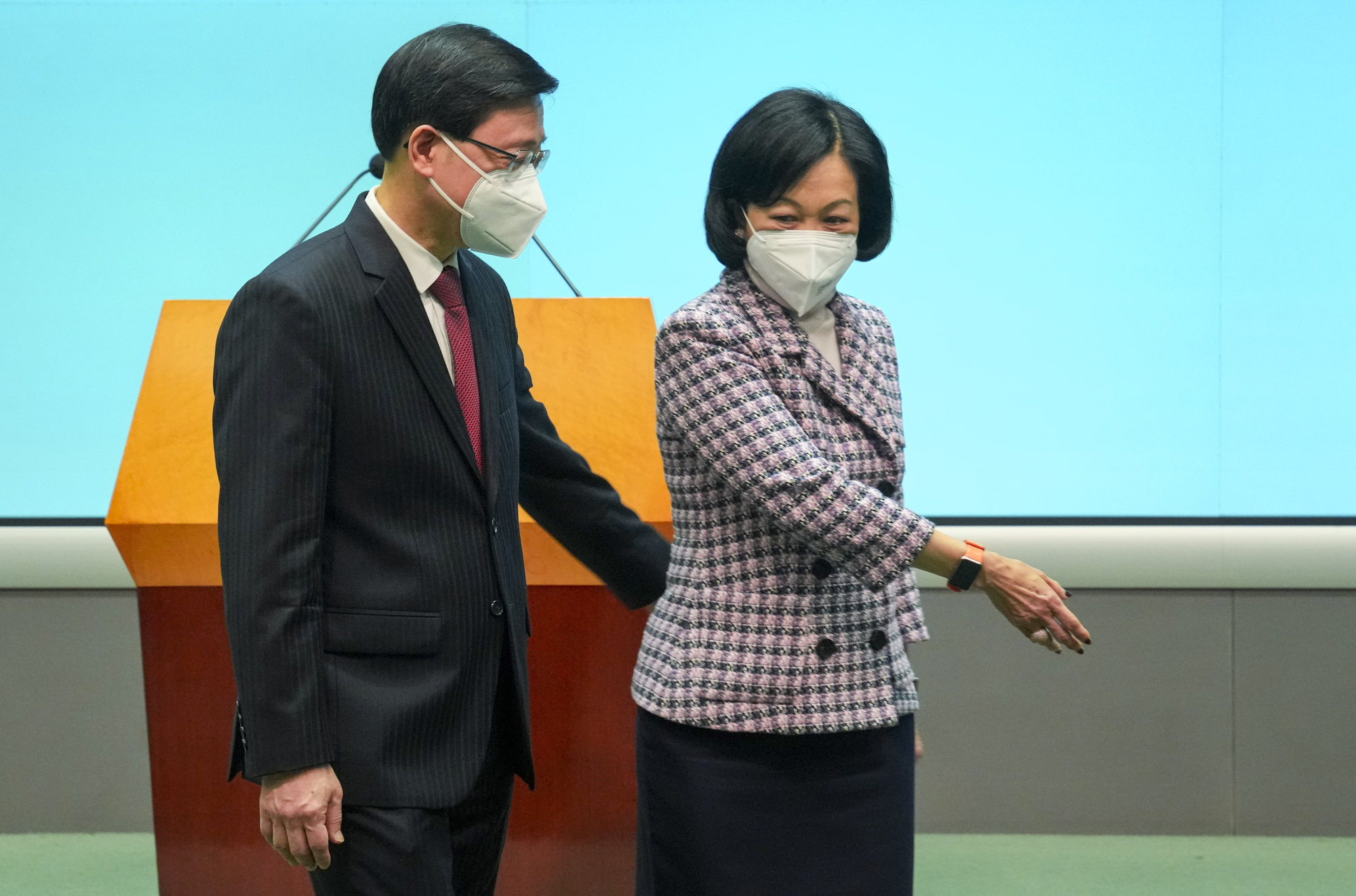
New Hong Kong leader John Lee says local national security law will not be rushed so all future risks can be covered
- While law will be enacted ‘as soon as possible’, John Lee says his administration wants to spend more time doing legal research
- Research will include looking into new and ‘very harsh’ national security measures in an unnamed common law jurisdiction
Hong Kong’s newly installed leader on Tuesday said he would prefer not to rush the creation of the city’s own national security law as he wanted to enact legislation that could conclusively address all risks that might arise in the future.
“We will do it as soon as possible … I hope this law, when it is completed, will work and can handle all kinds of problems that we can imagine. I do not want to see any amendments [in the future],” Lee said ahead of his first Executive Council meeting as leader. “Such a serious and careful attitude requires us to do thorough legal research on the issue.”
On Tuesday, Lee said that while he would like to introduce the local national security legislation “as soon as possible” because of constitutional responsibilities, he also needed to consider “whether the law could really address the most serious national security risks we could imagine”.
It was also worth looking at examples from other countries, which had recently introduced new national security bills, he argued, without mentioning any legislative timetable.
“There is especially one jurisdiction which practises common law,” he said. “It suggested some kinds of measures that are very harsh. But we will look at different countries to see what references we will take, based on the needs and risks of Hong Kong, and our country’s risks in the overall geopolitical situation.”

Lee added he was confident that the legislative work would be “in place”, noting he had veteran lawmaker and former security minister Regina Ip Lau Suk-yee serving as Exco convenor.
Ip spearheaded the city’s first effort in legislating Article 23 when she was security chief in 2003, but the attempt was abandoned after an estimated half a million people took to the streets in protest, and she eventually stepped down as a result.
Lee’s predecessor Carrie Lam Cheng Yuet-ngor had planned to enact the Article 23 legislation during her term, but the effort was delayed due to the Covid-19 pandemic and the “complicated” geopolitical situation.
Lau Siu-kai, vice-president of the semi-official think tank, the Chinese Association of Hong Kong and Macau Studies, said he believed the new government hoped to spend more time first on solving livelihood and social issues, so as to build up trust among residents, before pursuing legislation that was highly political.
“President Xi Jinping also demanded the government solve livelihood problems. The new team should avoid creating more political dynamite, especially when everyone is still taking a wait-and-see attitude towards Lee,” he said. “There is also no immediate urgency for a local security bill as we already have one.”
Lau said he believed Lee’s administration would still enact the legislation within his term given the constitutional requirement and “especially when there are not many opposition forces in the legislature”.
Earlier, Secretary for Security Chris Tang Ping-keung had said the government would refer to Britain’s new national security bill when drafting the city’s legislation. Its proposed law aims to provide the latest tools to tackle threats in the modern age and hostile acts against the country, according to the British Home Office.
Britain’s bill would give the government powers to restrict foreign nationals suspected of working for hostile states on where they can work, study and travel.
A new offence of sabotage, which carries a maximum life sentence, is targeted at foreign agents responsible for cyber or drone attacks on infrastructure or data critical to British interests, while the crime of foreign interference – targeted at elections – will be introduced with a maximum jail sentence of 14 years. Theft of state secrets will carry the same punishment.
Britain’s new law will also require social media companies to proactively tackle disinformation posted by foreign states, such as fake accounts on platforms including Meta’s Facebook and Twitter that were set up on behalf of foreign states to influence elections or court proceedings.
Separately, on the housing front, Lee said he would be pragmatic in addressing the shortage of flats and would be honest with the public if the government encountered any problems as it tackled the issue.
“I am pragmatic. I am not a chief executive who only shouts slogans. I will honestly tell everyone where the problem lies,” he said. “I think it is the right attitude to solve a problem. We might even find new solutions with this method. I promise I will work hard.”
Lee’s new de facto cabinet involves all his ministers and 16 non-official members, seven of whom are new.
The new leader said the non-official members were important advisers to him in decision-making. Lee also thanked and praised Ip for her experience in government, saying she could help “tell good Hong Kong stories”.


